Why Kids Hit and What to Do About it
Why Do Kids Hit?
Hitting like all behavior is a message–a communication that the child cannot put into words so they put it into action. Whether it’s an unusual occurrence or a frequent one, at all ages, there is an important message.
The parent’s job of course is for the child and person being hit to be safe but then to step back and begin the process of finding out what the hitting is all about.

I encourage parents, after everyone is calm and safe to not jump to conclusions, impulsively become punitive, or actually take any action with the notion consequences are needed immediately.
First the parent needs to step back and calm themselves. Quick self-reflection will help the parent come in contact with their own feelings if they are embarrassed their child hit someone else or rejection if their child hit the parent her or himself.
In other words, get a grip on your own emotions so you can calmly help your child in distress.

Then when things have become calm and that means you as the parent may need to soothe the upset child rather than yell, reprimand, or even judge the action because remember you don’t yet know what it means.
Only then can you begin a conversation about what’s on your child’s mind. Consider that they did not have “the skill” to control or regulate their emotions. They need you to help them gain that skill.
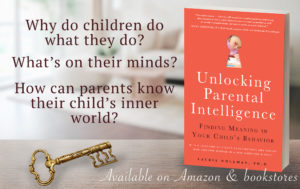
Read more about Parental Intelligence!
Punitive measure do not teach skills such as “think before you act” “consider your options before you act ” “think of others before you act.” All children do not naturally have these skills. Some do. But many do not. Children are not motivated to do the wrong thing but sometimes they don’t have the skills to do the more appropriate thing.
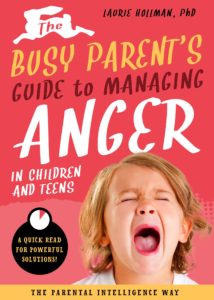
If the child says, “But I wanted the waffle first and was starving and couldn’t wait and you didn’t listen. No one listens” this is a child who is trying to tell you they don’t see themselves as being heard (as minor as the waffle may be). The problem is not the waffle. The problem is not always wanting one’s own way or being first.
The problem the child has directed the parent to is that they don’t feel listened to. They may be correct or wrong about that but it is how they feel and didn’t know how to express this before.
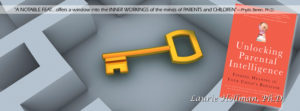
So this is now an opportunity, yes, an a key to an opportunity to understand more about how your child views his world and how he needs the skill to perceive it more accurately (unless he is never listened to).
You can ask him, if he can think of other ways he could have handled the situation. In other words, have him develop better thinking skills with that kind of question.
Speaking non-judgmentally and without blaming this is a crucial discussion. You show you are open to his point of view, do not blame him for having it, and are interested in understanding.
This may take a few tries but only when you are in a talking stage can you ultimately suggest that an apology would be a very good option as a way to restart, kind of like, rebooting, the situation. Apologizing is a skill. It means you are considering the other person’s feelings even when you are upset with them.

It takes time to learn this for some kids. (Certainly don’t yell, “Apologize now you bad kid”) We do not teach new skills that way because it not only fails, it’s hurtful, and increases the problems with communication and forming relationships.
Is Hitting a Phase? A Stage?
In my experience working with kids and parents for 40 years I don’t see hitting as a stage. Surely a one year old has less vocabulary than a ten year old who hits.
But somewhere, somehow, this child at whatever developmental age they are at have most likely seen others use hitting as a strategy. Frankly stated, parents who hit have children who hit.
Consider this child wasn’t born knowing this poor strategy. They learned it.Our job as parents is to discipline which means to teach. The word discipline comes from the word disciple, the student who is being taught.
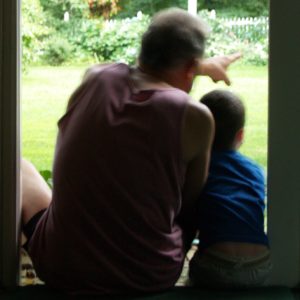
As parents I’m not suggesting rush to blame yourself just as I’m suggesting not to rush to blame your child. This hitting is just a red flag that enough talking isn’t happening and your child is not skilled in strategies to deal well with frustrations, rejections, disappointments or the unpredictable or uncertainty that comes in daily life.
For more information on what may be a new view and approach for parents, I recommend reading Unlocking Parental Intelligence: Finding Meaning in Your Child’s Behavior or another book called Changeable.
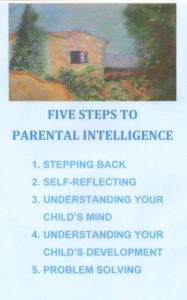
These books focus on children learning skills and collaborative problem solving at all ages.
They will guide you through the steps I’ve just described when you as a parent encounter troubling or puzzling behavior.
The main thrust is to believe Behavior is a Messenger.
We must as parents decode the message and then give the skills needed empathically to assist your child in this difficult process of tolerating frustrations common to every day life.

Home is where Parents and Teenagers Talk